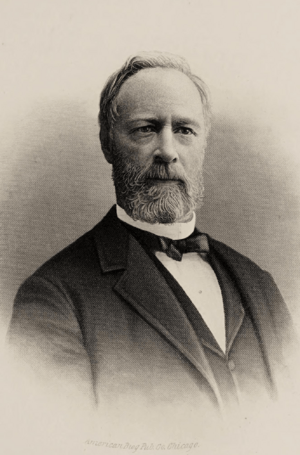Frederick Charles Winkler facts for kids
Quick facts for kids
Frederick C. Winkler
|
|
|---|---|
 |
|
| Member of the Wisconsin State Assembly from the Milwaukee 4th district |
|
| In office January 1, 1872 – January 1, 1873 |
|
| Preceded by | Charles M. Hoyt |
| Succeeded by | Gottlob E. Weiss |
| Personal details | |
| Born |
Frederick Charles Winkler
March 15, 1838 Bremen, German Confederation |
| Died | March 22, 1921 (aged 83) Los Angeles, California |
| Resting place | Forest Home Cemetery Milwaukee, Wisconsin |
| Political party | Republican |
| Spouses |
|
| Children |
|
| Parents |
|
| Profession | lawyer |
| Military service | |
| Allegiance | |
| Branch/service | Union Army |
| Years of service | 1861–1865 |
| Rank | |
| Commands | 26th Reg. Wis. Vol. Infantry |
| Battles/wars | American Civil War |
Frederick Charles Winkler (born March 15, 1838 – died March 22, 1921) was an important person in American history. He was a lawyer and a politician. He also served as an officer in the Union Army during the American Civil War. Later, he became a member of the Wisconsin State Assembly.
About Frederick C. Winkler
Frederick Charles Winkler was born in Bremen, Germany, on March 15, 1838. When he was about six years old, in 1844, his family moved to the United States. He passed away on March 22, 1921, in Los Angeles, California. He is buried in Forest Home Cemetery in Milwaukee, Wisconsin.
Winkler's Military Service
Frederick Winkler played an important role in the American Civil War. He served with famous generals like Franz Sigel and Carl Schurz. On September 17, 1862, he joined the 26th Wisconsin Volunteer Infantry Regiment as a captain.
During the war, he was wounded at the Battle of Gettysburg on July 1, 1863. He was promoted several times for his bravery. He became a major on December 1, 1863, and a lieutenant colonel on July 8, 1864.
Later, he was given the honorary rank of brevet brigadier general. This special rank was confirmed by the United States Senate in 1866.
Winkler's Political Career
After his military service, Frederick Winkler became involved in politics. He was a member of the Republican Party. In 1872, he served in the Wisconsin State Assembly. This is a group of elected officials who make laws for the state of Wisconsin.
 | Frances Mary Albrier |
 | Whitney Young |
 | Muhammad Ali |

